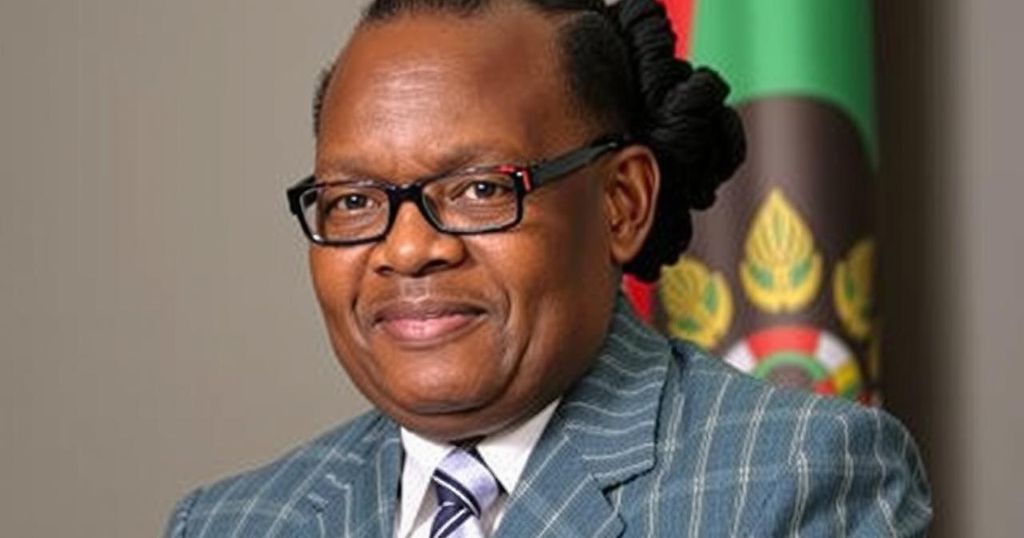World news
AFFIRMATIVE REPOSITIONING, AFRICA, ALL PEOPLE ’ S PARTY, APP, AR, CIVIC ENGAGEMENT, DEMOCRACY, ELECTION, ELECTORAL COMMISSION, GOVERNANCE, IMMS NASHINGE, INDEPENDENT PATRIOTS FOR CHANGE, IPC, KHOMAS, LANDLESS PEOPLE ’ S MOVEMENT, LEADERSHIP, LPM, NAMIBIA, NASHINGE, NATIONAL ASSEMBLY, NDAIT, NET, OBE, OPPOSITION, PDM, POPULAR DEMOCRATIC MOVEMENT, SWAPO, WINDHOEK, ZANU - PF, ZIMBABWE
Maya Ramirez
0 Comments
Nandi-Ndaitwah Refutes Claims of Zimbabwe’s Interference in Namibia Elections
Netumbo Nandi-Ndaitwah, Namibia’s first female President-elect, has rejected allegations of Zimbabwean interference in the recent elections, made by opposition parties. Despite claims of influence by Zimbabwe’s Zanu-PF, no conclusive evidence was provided. Issues such as ballot shortages and logistical delays during the elections added to the controversy, with critics questioning the effectiveness of Namibia’s Electoral Commission.
Netumbo Nandi-Ndaitwah, the newly elected first female President of Namibia, has firmly rejected allegations suggesting that Zimbabwe interfered in Namibia’s recent presidential and National Assembly elections. This assertion originated from five Namibian opposition parties, which claimed that Zimbabwe’s ruling Zanu-PF party had an influence on the electoral outcomes, favoring the ruling party Swapo. Despite the serious nature of these claims, the opposition groups—comprising the Independent Patriots for Change (IPC), Landless People’s Movement (LPM), Affirmative Repositioning (AR), All People’s Party (APP), and Popular Democratic Movement (PDM)—failed to provide substantial proof of their allegations.
LPM leader Ivan Skrywer compared the instances of ballot paper shortages at Namibian polling stations to alleged manipulation tactics used by Zanu-PF in Zimbabwe. He remarked, “If we look at the election results in Zimbabwe last year, this was the tactic used on day one.” Furthermore, IPC spokesperson Imms Nashinge highlighted a social media post by Zimbabwean presidential spokesperson George Charamba, who reportedly announced Swapo’s electoral victory ahead of official confirmation, raising suspicions about Zimbabwe’s engagement in Namibian affairs. Nashinge questioned, “How do they know? Is Namibia a province of Zimbabwe? Since when has Zimbabwe had so much interest in our affairs?”
In response to these allegations, Nandi-Ndaitwah characterized them as unfounded and a deliberate conspiracy aimed at undermining the credibility of Swapo. During a recent address in Windhoek, she urged investigative journalists to scrutinize these claims, asserting, “Those saying it, they know it’s not true, but they are saying it deliberately to confuse our people.”
The electoral process in Namibia was met with numerous obstacles, notably logistical challenges resulting in ballot shortages and equipment malfunctions, contributing to long queues and delays in voting. Opposition factions contend that these issues hindered voter turnout, significantly impacting regions such as Khomas. Furthermore, critics have pointed towards inadequacies in the Electoral Commission’s preparations and questioned the legality behind the decision to extend voting days by two. Throughout these controversies, both Zanu-PF and Swapo officials have denied any misconduct, with Zanu-PF’s secretary-general Obert Mpofu dismissing the accusations as “primitive thinking.”
The recent Namibian elections have been clouded by controversy and logistics difficulties. Namibia’s political landscape is largely dominated by Swapo, which has faced accusations from opposition parties regarding potential interference from Zimbabwe, particularly from the ruling Zanu-PF party. The inherent tensions reflect a complex relationship between the countries and raise questions about electoral integrity amidst logistical challenges, which are often leveraged by opposition parties to draw attention to perceived irregularities in governance and electoral processes. This incident underscores broader themes of trust, sovereignty, and regional politics in Southern Africa, particularly given Zimbabwe’s historical influence in the region.
In summary, the recent allegations against Zimbabwe regarding its purported interference in Namibia’s elections have been categorically denied by President-elect Netumbo Nandi-Ndaitwah. Despite accusations from opposition parties, no solid evidence has been presented to substantiate their claims. Moreover, ongoing logistical problems during the elections have sparked significant debate about the electoral process in Namibia and raised concerns regarding the effectiveness of the Electoral Commission. Overall, both Zanu-PF and Swapo officials maintain their innocence regarding any influence or manipulation during the election period, which remains a contentious topic in Namibian political discourse.
Original Source: newscentral.africa




Post Comment